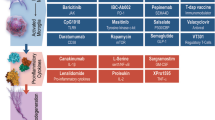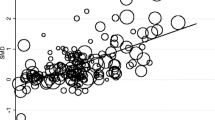Abstract
Objectives
To evaluate the combined action of folic acid and vitamin B12 supplementation on cognitive performance and inflammation in patients with Alzheimer’s disease (AD).
Design
This was a randomized, single-blind, placebo-controlled trial.
Participants
Patients (n=120) diagnosed clinically as probable AD and in stable condition from Tianjin Key Laboratory of Cerebrovascular and Neurodegenerative Diseases.
Measurements
Individuals were randomly divided into the intervention group (n=60, folic acid 1.2 mg/d + vitamin B12 50 µg/d) and the placebo group (n=60). Cognitive performance, blood folate, vitamin B12, one carbon cycle metabolite, and inflammatory cytokine levels were measured at baseline and after 6 months. The data were analyzed using linear mixed models for repeated measures.
Results
A total of 101 participants (51 in the intervention group and 50 in the placebo group) completed the trial. Folic acid plus vitamin B12 supplementation had a beneficial effect on the MoCA total scores (P=0.029), naming scores (P=0.013), orientation scores (P=0.004), and ADAS-Cog domain score of attention (P=0.008), as compared to those of the control subjects. Moreover, supplementation significantly increased plasma SAM (P<0.001) and SAM/SAH (P<0.001), and significantly decreased the levels of serum Hcy (P<0.001), plasma SAH (P<0.001), and serum TNFα (P<0.001) compared to in the control subjects.
Conclusions
Folic acid and vitamin B12 supplementation showed a positive therapeutic effect in AD patients who were not on a folic acid-fortified diet. The findings of this study help to delineate nutrient intervention as far as public health management for the prevention of dementia is concerned.

Similar content being viewed by others
References
Kivimäki M, Luukkonen R, Batty GD, et al. Body mass index and risk of dementia: analysis of individual-level data from 1.3 million individuals. Alzheimers Dement 2018; 14(5):601–609.
Dubois B, Epelbaum S, Nyasse F, et al. Cognitive and neuroimaging features and brain β-amyloidosis in individuals at risk of Alzheimer’s disease (Insight-preAD): a longitudinal observational study. Lancet Neurol 2018; 17(4):335–346.
Barnard ND, Bush AI, Ceccarelli A, et al. Dietary and lifestyle guidelines for the prevention of Alzheimer’s disease. Neurobiol Aging 2014; 35 Supplement 2:S74–S78.
Smith AD, Refsum H, Bottiglieri T, et al. Homocysteine and dementia: an international consensus statement. J Alzheimers Dis 2018; 62(2):561–570.
Zheng M, Zhang M, Yang J, et al. Relationship between blood levels of methyl donor and folate and mild cognitive impairment in Chinese patients with type 2 diabetes: a case-control study. J Clin Biochem Nutr 2014; 54(2):122–128.
Li JG, Barrero C, Gupta S, et al. Homocysteine modulates 5-lipoxygenase expression level via DNA methylation. Aging Cell 2017; 16(2):273–280.
Lin X, Meng X, Song Z. Homocysteine and psoriasis. Biosci Rep 2019; 39(11):BSR20190867.
Yin P, Wang X, Wang S, et al. Maresin 1 improves cognitive decline and ameliorates inflammation in a mouse model of Alzheimer’s disease. Front Cell Neurosci 2019; 13:466.
Aisen PS, Schneider LS, Sano M, et al. High-dose B vitamin supplementation and cognitive decline in Alzheimer disease: a randomized controlled trial. JAMA 2008; 300(15):1774–1783.
Jack CR Jr, Albert MS, Knopman DS, et al. Introduction to the recommendations from the National Institute on Aging-Alzheimer’s Association workgroups on diagnostic guidelines for Alzheimer’s disease. Alzheimers Dement 2011; 7(3):257–262.
Roalf DR, Moore TM, Mechanic-Hamilton D, et al. Bridging cognitive screening tests in neurologic disorders: a crosswalk between the short Montreal Cognitive Assessment and mini-mental state examination. Alzheimers Dement 2017; 13(8):947–952.
Rosen WG, Mohs RC, Davis KL. A new rating scale for Alzheimer’s disease. Am J Psychiatry 1984; 141(11):1356–1364.
Oulhaj A, Refsum H, Beaumont H, et al. Homocysteine as a predictor of cognitive decline in Alzheimer’s disease. Int J Geriatr Psychiatry 2010; 25(1):82–90.
Ravaglia G, Forti P, Maioli F, et al. Homocysteine and folate as risk factors for dementia and Alzheimer disease. Am J Clin Nutr 2005; 82(3):636–643.
Ravi SK, Narasingappa RB, Vincent B. Neuro-nutrients as anti-Alzheimer’s disease agents: A critical review. Crit Rev Food Sci Nutr 2019; 59(18):2999–3018.
Remington R, Bechtel C, Larsen D, et al. A Phase II randomized clinical trial of a nutritional formulation for cognition and mood in Alzheimer’s disease. J Alzheimers Dis 2015; 45(2):395–405.
Ma F, Zhou X, Li Q, et al. Effects of folic acid and vitamin B12, alone and in combination on cognitive function and inflammatory factors in the elderly with mild cognitive impairment: A single-blind experimental design. Curr Alzheimer Res 2019; 16(7):622–632.
Kwok T, Lee J, Law CB, et al. A randomized placebo controlled trial of homocysteine lowering to reduce cognitive decline in older demented people. Clin Nutr 2011; 30(3):297–302.
Seshadri S, Beiser A, Selhub J, et al. Plasma homocysteine as a risk factor for dementia and Alzheimer’s disease. N Engl J Med 2002; 346(7):476–483.
Ford ES, Smith SJ, Stroup DF, et al. Homocyst(e)ine and cardiovascular disease: a systematic review of the evidence with special emphasis on case-control studies and nested case-control studies. Int J Epidemiol 2002; 31(1):59–70.
DeJager CA, Oulhaj A, Jacoby R, et al. Cognitive and clinical outcomes of homocysteine-lowering B-vitamin treatment in mild cognitive impairment: a randomized controlled trial. Int J Geriatr Psychiatry 2012; 27(6):592–600.
Chen H, Liu S, Ji L, et al. Folic acid Supplementation Mitigates Alzheimer’s disease by Reducing Inflammation: A randomized Controlled Trial. Mediators Inflamm 2016; 2016:5912146.
Laurino P, Tawfik DS. Spontaneous emergence of S-adenosylmethionine and the evolution of methylation. Angew Chem Int Ed Engl 2017; 56(1):343–345.
Crider KS, Yang TP, Berry RJ, et al. Folate and DNA methylation: a review of molecular mechanisms and the evidence for folate’s role. Adv Nutr 2012; 3(1):21–38.
Wang L, Chang S, Wang Z, et al. Altered GNAS imprinting due to folic acid deficiency contributes to poor embryo development and may lead to neural tube defects. Oncotarget 2017; 8(67):110797–110810:29340017.
Ostrakhovitch EA, Tabibzadeh S. Homocysteine and age-associated disorders. Ageing Res Rev 2019; 49:144–164.
Chrysant SG, Chrysant GS. The current status of homocysteine as a risk factor for cardiovascular disease: a mini review. Expert Rev Cardiovasc Ther 2018; 16(8):559–565.
McCaddon A, Miller JW. Assessing the association between homocysteine and cognition: reflections on Bradford Hill, meta-analyses, and causality. Nutr Rev 2015 Oct; 73(10):723–735.
Smith AD, Refsum H. Homocysteine, B vitamins, and cognitive impairment. Annu Rev Nutr 2016 Jul 17; 36:211–239.
Brosseron F, Krauthausen M, Kummer M, et al. Body fluid cytokine levels in mild cognitive impairment and Alzheimer’s disease: a comparative overview. Mol Neurobiol 2014; 50(2):534–544.
Tarkowski E, Liljeroth AM, Minthon L, et al. Cerebral pattern of pro- and anti-inflammatory cytokines in dementias. Brain Res Bull 2003; 61(3):255–260.
Wong D, Prameya R, Dorovini-Zis K. In vitro adhesion and migration of T lymphocytes across monolayers of human brain microvessel endothelial cells: regulation by ICAM-1, VCAM-1, E-selectin and PECAM-1. J Neuropathol Exp Neurol 1999; 58(2):138–152.
Das S, Basu A. Inflammation: a new candidate in modulating adult neurogenesis. J Neurosci Res 2008; 86(6):1199–1208.
Marsland AL, Gianaros PJ, Abramowitch SM, et al. Interleukin-6 covaries inversely with hippocampal grey matter volume in middle-aged adults. Biol Psychiatry 2008; 64(6):484–490.
McAfoose J, Baune BT. Evidence for a cytokine model of cognitive function. Neurosci Biobehav Rev 2009; 33(3):355–366.
Shen XN, Niu LD, Wang YJ, et al. Inflammatory markers in Alzheimer’s disease and mild cognitive impairment: a meta-analysis and systematic review of 170 studies. J Neurol Neurosurg Psychiatry 2019; 90(5):590–598.
Acknowledgments
The authors thank all the subjects for their participation. The authors declare no potential conflicts of interest relevant to this article. This study was supported by a grant from the National Natural Science Foundation of China (No. 81730091), Tianjin Science and Technology Support Program (No. 15ZCZDSY01040), China Postdoctoral Science Foundation (No. 2017M611179), and the Scientific Program of the Tianjin Education Committee (No. 2016YD20).
Author information
Authors and Affiliations
Corresponding authors
Ethics declarations
Conflicts of interest: None declared.
Ethical standards: The study was carried out in accordance with the Declaration of Helsinki and the International Conference on Harmonization Good Clinical Practice Guidelines.
Rights and permissions
About this article
Cite this article
Chen, H., Liu, S., Ge, B. et al. Effects of Folic Acid and Vitamin B12 Supplementation on Cognitive Impairment and Inflammation in Patients with Alzheimer’s Disease: A Randomized, Single-Blinded, Placebo-Controlled Trial. J Prev Alzheimers Dis 8, 249–256 (2021). https://doi.org/10.14283/jpad.2021.22
Received:
Accepted:
Published:
Issue Date:
DOI: https://doi.org/10.14283/jpad.2021.22




